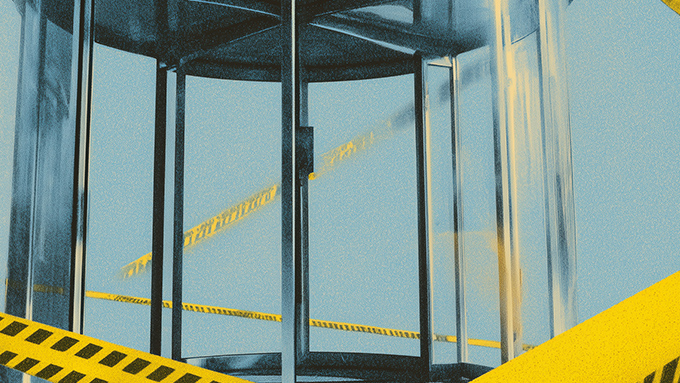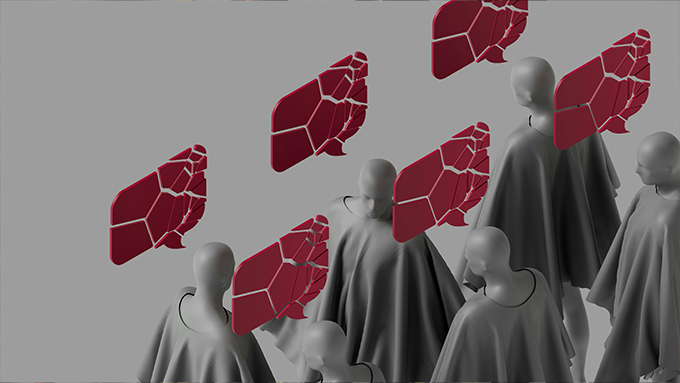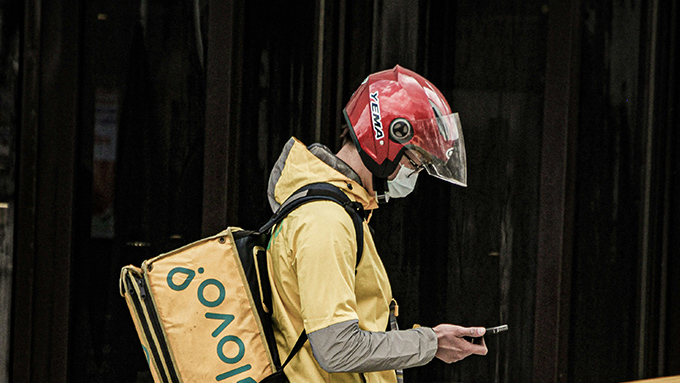A New Breath of Fresh Air for Competition Investigations from the Constitutional Court
Introduction
In these days when the Competition Board (“Board”) frequently imposes administrative fines for preventing on-site inspections and both the Competition Authority (“Authority”) and undertakings take legal and technical measures regarding on-site inspections, a striking development has occurred. In its decision dated 23.03.2023 and numbered 2019/40991 (“Constitutional Court Decision” or “Decision”) published in the Official Gazette dated 20.06.2023[1], the Constitutional Court (“CC”) decided that the on-site examinations carried out by the Authority's experts without a judge's decision violate the right to immunity of domicile under Article 21 of the Constitution, considering workplaces as " domicile". Although the scope of this Decision, which opened the doors to a new era in competition law practice, is not limited to the applicant's claims regarding the violation of immunity of domicile, this article focuses on the Constitutional Court's assessment in the Decision that the Authority's on-site inspection competence violates the right to immunity of domicile.
The Subject of the Application to the CC
It is observed that the applicant, which operates in the automotive market, applied to the administrative judicial process for the cancellation of the administrative fine imposed by the Board on the grounds of violation of Article 4 of the Law No. 4054 on the Protection of Competition (“Law No. 4054”) upon the preliminary investigation and subsequent investigation conducted by the Board against the undertakings operating in the automotive sector.
The subject matter of the application is related to the allegations that the right to immunity of domicile was violated due to the unlawfulness of the inspection at the workplace, the right to property due to the imposition of an administrative fine, the prohibition of discrimination in connection with the right to property due to the fact that the export turnover of his applicant was taken into account although the export turnover of other undertakings was not in determining the amount of the fine, the principle of not being retried and punished due to the investigation of the same act for the second time, the right to be tried within a reasonable time due to the long duration of the trial, and the right of access to the court due to the abolition of the decision correction stage by the law that entered into force while the trial was in progress.[2]
Competence of the Authority for On-Site Inspection
One of the most critical issues addressed in the Constitutional Court Decision in terms of competition law practice is the on-site inspection authority regulated under Article 15 of Law No. 4054. According to the above-mentioned provision, the Board may conduct inspections at undertakings and associations of undertakings when deemed necessary in the performance of its duties. Competition experts working under the Board may examine the books, all kinds of data and documents kept in physical and electronic media and information systems of undertakings and their employees, may take copies and physical samples of these, may request written or oral explanations, and may conduct on-site examinations regarding all kinds of assets of the undertakings.
Article 15 of Law No. 4054 has been renewed as a result of the new procedures required for on-site examinations due to digitalization. In addition, the Guideline on the Examination of Digital Data in On-Site Examinations ("Guideline") was published regarding the procedure to be applied in the examination of digital data in accordance with this article.[3] As stated in the Guideline, the Authority experts are authorized to examine the information systems of the undertaking such as servers, desktop/laptop computers, portable devices and storage devices such as CDs, DVDs, USBs, external hard drives, backup records, cloud services.[4] Although portable communication devices, which are determined to be entirely for personal use, cannot be subject to examination, the legal basis of the rapid review method[5] carried out by experts to determine whether the devices contain digital data belonging to the undertaking has always been debated until now.
With the deterrent effect of the administrative fines recently imposed due to the prevention of on-site inspections, undertakings continue to raise awareness more than ever before. The undertakings take strict measures to ensure that their employees do not delete or destroy any document, information or data from the moment the on-site examination starts, and that they display all kinds of co-operative behavior to facilitate the on-site examination. Given the intensive efforts to conduct on-site examinations in co-operation with the Authority, the Constitutional Court's Decision opens a new curtain for both undertakings and competition law practitioners regarding the on-site examination process.
The Domicile Nature of the Workplace in the Perspective of the Constitutional Court, Evaluation of the On-Site Inspection Without a Judge's Decision in the Meaning of Violation of the Immunity of the Domicile
The “Domicile” Nature of the Workplace
In its Decision, the Constitutional Court stated that the concept of domicile also covers workplaces, thus, the office where a person carries out their profession, the registered headquarters where the activities of a company operated by a private person are carried out, the registered headquarters, branches and other workplaces of legal entities can also be considered as domiciles.[6] Again, by referring to previous ECHR decisions, the Constitutional Court emphasized that the concept of “domicile” within the scope of Article 8 of the ECHR Convention can be interpreted to include the management offices, branches and other workplaces of companies.[7] Thus, it is clearly stated that the on-site inspection carried out within the scope of Law No. 4054, the areas of the headquarters, branches and facilities of the undertaking where the management works are carried out and the areas that cannot be freely accessed by everyone, such as workrooms, will be considered as domicile without any hesitation.[8]
Interference of the On-Site Inspection with the Right to the Immunity of Domicile
In the concrete case subject to the Constitutional Court Decision, it was revealed that the inspection carried out at the applicant's workplace, which enabled obtaining 78 pages of e-mail documents from the computers of the applicant company officials, constituted an interference with the right to immunity of domicile.[9] As guaranteed under Article 21 of the Constitution, no one's residence may be intruded upon. On the other hand, no one's residence may be entered, searched or seized unless there is a duly issued judge's decision based on one or more of the following reasons: national security, public order, prevention of crime, protection of public health and morals or protection of the rights and freedoms of others; and in cases where delay is inconvenient due to these reasons, unless there is a written order of the authority authorized by law.[10]
However, Article 15 of Law No. 4054 introduces a rule stipulating that the Authority's experts may exercise their on-site inspection competences without a judge's decision. Thus, Law No. 4054 authorizes competition experts to freely visit and inspect workplaces, which are considered as " domicile", without a judge's decision. The only exception to the aforementioned freedom is in cases where the on-site examination is prevented or likely to be prevented. In these cases, the on-site inspection is carried out with the decision of the criminal judge of peace.
Execution of Investigation by Written Order of the Board in Cases of Inconvenience in Delay
Pursuant to Article 21 of the Constitution, no one's residence may be entered, searched or seized unless there is a written order of an authority authorized by law in cases where there is inconvenience in delay. However, the decision of the competent authority must also be submitted to the approval of the judge in charge within twenty-four hours.[11] Although Article 15 of Law No. 4054 states that on-site examination may be conducted by the Board's decision, it is noted that the conduct of on-site examination by the Board's order is not specific to the cases where there is an inconvenience in delay.[12] In the Decision, even if it is accepted for a moment that the decision of the Board, which is the competent authority, to carry out an on-site examination is limited to cases where there is an inconvenience to delay, it is stated that the absence of the obligation to submit the Board's decision to the approval of the judge in charge within twenty-four hours is not compatible with the additional guarantee in Article 21 of the Constitution[13]
Moreover, in the concrete case, no attempt was made to prevent the applicant from conducting an on-site inspection, which enabled the inspection to be carried out without the need for a judge's decision. However, the Constitutional Court stated that even if this situation was in compliance with Article 15 of Law No. 4054, this practice violated Article 21 of the Constitution.[14]
Conclusion
The Constitutional Court concluded that the on-site inspection carried out by the Authority's experts at the company headquarters of the applicant undertaking and without a judge's decision violated the right to immunity of domicile guaranteed by Article 21 of the Constitution. Accordingly, the Constitutional Court decided to notify the Grand National Assembly of Turkey (“TBMM”) in order to resolve the structural problem between the Constitutional regulation and the on-site inspection authorization under Law No. 4054.[15] In the following period, it is not expected that competition investigations will continue from where they left off, ignoring the Constitutional Court Decision, and the contrary would not be legally correct. With this approach, it is foreseen that a legislative process will be initiated to harmonize Article 15 of Law No. 4054 with the Constitution. In any case, even though the Constitutional Court Decision has consequences for the applicant, the legal validity of the previous competition investigations conducted without a judge's decision and the competition investigations following the Constitutional Court Decision and the quality of the evidence obtained during these investigations will always be a matter of debate before the courts. The repercussions of this Decision, which opens the doors to a new era in competition law practice, are expected to continue for a long time.
- Official Gazette dated 20.06.2023 and numbered 32227, https://www.resmigazete.gov.tr/20.06.2023 (Constitutional Court Decision)
- CC Decision, para.1.
- https://www.rekabet.gov.tr/tr/Sayfa/Mevzuat/-kilavuzlar (Guideline)
- Guideline, para. 3.
- Guideline, para. 4.
- CC Decision, para. 54.
- CC Decision, para. 48.
- CC Decision, para. 57.
- CC Decision, para. 59.
- Constitution art. 21.
- Constitution art. 21.
- CC Decision, para. 64.
- CC Decision, para. 65.
- CC Decision, para. 66.
- CC Decision, VI, C.
All rights of this article are reserved. This article may not be used, reproduced, copied, published, distributed, or otherwise disseminated without quotation or Erdem & Erdem Law Firm's written consent. Any content created without citing the resource or Erdem & Erdem Law Firm’s written consent is regularly tracked, and legal action will be taken in case of violation.
Other Contents

The U.S. District Court for the District of Columbia (“Court”) issued its memorandum opinion (Memorandum Opinion) on November 18, 2025, in the antitrust case (“Case”) between the Federal Trade Commission (“FTC”) and Meta Platforms Inc. (“Meta”). The FTC alleges that Meta monopolized the market…

No-poach agreements, which have become one of the most prominent concepts in global competition law in recent years, are defined in the Glossary of Competition Terms as “agreements, whether direct or indirect, whereby one undertaking agrees not to make job offers to, or hire, the employees of another...

The Competition Board (“Board”) has broad powers to request information from undertakings. The legal basis for this authority is provided by Article 14 of Law No. 4054 on the Protection of Competition (“Law No. 4054”). Under this provision, the Board may request any information it deems necessary from public...

Competition authorities around the world have increasingly focused on labor market infringements under competition law, issuing new regulations and guidance recently. Notable examples include the U.S. Department of Justice and Federal Trade Commission’s joint guidance, the Japanese Fair Trade Commission’s...

Chapter 8 of the General Data Protection Regulation (“GDPR”) sets out the legal remedies available to data subjects in the event of a breach of their rights under the GDPR. Accordingly, each data subject has a right to lodge a complaint with the supervisory authority of the Member State in which they reside, work...

Mergers and acquisitions play a critical role in shaping the competitive structure of the market. Although such transactions can lead to positive outcomes such as the provision of products and services at lower prices, the development of new products and technologies, and improvements in quality, they may also...

Technology and the opportunities it brings undoubtedly play a key role in strengthening the competitiveness of market players. In this context, pricing algorithms that enable undertakings to monitor publicly available prices and optimize their own pricing strategies have become widely used, especially by digital platforms...

The Regulation on Fines to Apply in Cases of Agreements, Concerted Practices and Decisions Restricting Competition, and Abuse of Dominant Position (“Former Regulation on Fines”), which entered into force upon its publication in the Official Gazette dated February 15, 2009 and numbered 27142, was...

In the past years, the Turkish Competition Board (“Board”) has closely monitored the activities of undertakings operating in the retail sector. As a result of the Board’s record of administrative fines, horizontal type of violations in the retail sector have been highly publicized. Vertical violations such as resale price...

In recent years, numerous automobile manufacturers have announced their goals to reduce carbon emissions, with many brands setting net-zero carbon targets spanning from production processes to the lifecycle of their vehicles. While ongoing debates persist regarding the significantly higher carbon footprint of...

Under Article 15 of Law No. 4054 on the Protection of Competition (“Law No. 4054”), the Competition Board (“Board”) may conduct on-site inspections at the undertakings’ premises when it deems necessary in fulfilling the duties assigned to it. During the on-site inspection, the Board is authorized to examine all...

Agreements and information exchanges between undertakings in labor markets have recently been examined in various preliminary investigations and investigations initiated by the Turkish Competition Authority (“Authority”). Following the investigations in which some undertakings were subject to...

The Turkish Competition Board’s (Board) decision regarding the acquisition of the international road transport business line of Ekol Lojistik AŞ (Ekol) by DFDS A/S (DFDS) has been one of the most prominent transactions on the competition law agenda recently...

The Competition Board (“Board”) has broad powers to request information from undertakings. The Board’s authority to request information arises from Article 14 of the Law No. 4054 on the Protection of Competition (“Law No. 4054”). Under the relevant provision, the Board may request any information it deems...

Doğuş Otomotiv Servis ve Ticaret A.Ş. (Doğuş) applied to the Turkish Competition Authority for an exemption for the practice of recommending basic wages to be applied to sales and after-sales service employees of its authorized dealers and distributors...

Access to Instagram was blocked ex officio by the Information and Communication Technologies Authority (ICTA) as of 2.08.2024. Under Article 8 of Law No. 5651 on the Regulation of Publications on the Internet and Combating Crimes Committed Through These Publications, ICTA can issue an ex officio access...

It is well known that agreements between employer undertakings with regards to their employees, such as wage-fixing and non-poaching agreements, along with competitively sensitive information exchanges have been under the scrutiny of competition authorities all over the world, including the Turkish Competition...

Automotive is one of the sectors in which the world’s most significant investments are made. The Competition Board (“Board”) has been closely interested in the automotive sector over the years and has conducted various examinations and studies in this field...

Competition authorities around the world continue unabated to investigate competition concerns arising from data collection and processing activities of digital platforms and impose severe sanctions as a result...





The startup ecosystem in Turkey has experienced notable growth in recent years. In the last quarter of 2023, 81 startups secured a combined investment of around 60 million dollars. While the number of investments remained consistent when comparing the third quarter periods of 2022-2023, there was a decrease...

Hub and Spoke cartel is a type of violation that is not clearly defined and regulated under Law No. 4054 on the Protection of Competition (“Law No. 4054”). Decisional practices of foreign competition authorities, particularly the UK Competition and Markets Authority’s decisions (“CMA”), are instructive concerning...

The Competition Board ("Board") made an addition to its line of decisions on resale price maintenance with its decision on Sunny Elektronik Sanayi ve Ticaret A.Ş. ("Sunny") . In its decision, the Board thoroughly examined the allegations regarding Sunny's involvement in maintaining resale prices and restricting...

It is observed that the Competition Authority (“Authority”) has recently scrutinized various industries such as fast-moving consumer goods, labor market, pharmaceuticals, and cement. When the reasoned decisions of the Competition Board (“Board”) published in October are examined, it can be seen that the...

Jules Verne says, “Everything on earth has a limited lifespan, nothing that will exist forever can be created by human hands”. Perhaps change is the only constant concept in all our lives. Despite two major world wars and countless periods of crisis, humanity has been undergoing a great change and...

At the meeting of the Fédération Internationale de Football Association (“FIFA”) held on 16 December 2022, the FIFA Council approved the FIFA Football Agents Regulations (“FFAR”). In the FFAR, various amendments have been made, such as the introduction of a maximum service fee limit that football agents are...

Resale Price Maintenance (RPM) is still considered a hardcore restriction under the recently revised Vertical Block Exemption Regulation (VBER), which means that it cannot benefit from a statutory exemption under Article 101(1) TFEU, unlike certain other types of vertical agreements. However, it has been debated...

In competition law, it is important to accurately determine the concept of undertaking, especially in terms of mergers and acquisitions. Therefore, the concept of economic entity aims to reveal the economic units covered by the undertakings. The relationship between the concept of economic entity and family ties comes...

Online advertising has become an important source for businesses for promoting products and services and meeting consumers, as a result of the rapid development of information technologies and increase in the use of internet. Delivering targeted messages to consumers at the right time through the digital...

Selective distribution systems refer to a type of distribution system in which suppliers commit to selling the contracted goods or services directly or indirectly to distributors selected based on specified criteria, while the distributors commit not to sell the said goods or services to unauthorized...

Fast-moving consumer goods is undoubtedly one of the sectors that the Competition Authority has been working most intensively since the COVID 19 pandemic. Among the most important developments of this period was the Sector Inquiry initiated on Fast Moving Consumer Goods (“FMCG”) Retailing...

In the decision of the Constitutional Court ("Constitutional Court" or "Court") dated 09.11.2022, numbered 2020/67 E. 2022/139 K. (the "Decision"), the annulment of certain articles of the Law Amending the Law on the Protection of Competition No. 4054 ("Law No. 7246") was requested...

In Turkish competition law, certain types of mergers and acquisitions are subject to Turkish Competition Board’s (“Board”) approval in order to gain legal validity. Pursuant to Article 7 of the Law No. 4054 on the Protection of Competition (“Law No. 4054”), the Board is competent to define mergers and acquisitions...

Recently, the Competition Board (the Board) had imposed administrative fines on banks and financial institutions for failing to respond to the request for information within the scope of a preliminary investigation.[i] The request for information that lays the groundwork for the administrative fine imposed by...

Amazon, a world-famous company, is an e-commerce company that operates the world’s largest online shopping platform. In the backstage, Amazon is a data-driven company whose retail decisions are mostly driven by automated systems, fueled by the relevant market data. That being said, Amazon has a dual...

The right to make on-site inspections is one of the Competition Board’s (“Board”) most important tools for revealing whether Law No. 4054 on the Protection of Competition (“Law No. 4054”) has been violated. The effective use of this authority is quite important in terms of obtaining fruitful results from...

“Harese” is an interesting Arabic word. There is a thorn that camels love very much in the desert. The camel eats the thorn with great greed. So much so that, its mouth bleeds as it eats, but it doesn't stop eating. The taste of the thorn is mixed with the salty taste of its own blood. This mixed taste drives the camel...

Turkey’s leading pay television service provider, Krea İçerik Hizmetleri ve Prodüksiyon A.Ş. (“Digiturk”), is frequently the subject of complaints made to the Competition Authority (“Authority”). In fact, the Competition Board (“Board”) issues a new decision about Digiturk almost every year. In these decisions...

The French Competition Authority (Autorité de la Concurrence), within the scope of the competition law proceeding initiated upon the complaint of Criteo SA (“Criteo”), accepted the commitments proposed by Meta Platforms Inc., Meta Platforms Ireland Ltd., and Facebook France...

While the scope of Competition Board’s (“Board”) power to conduct on-site inspections has increased with the introduction of Guidelines on Examination of Digital Data during On-site Inspections (“Guidelines”), nowadays the amount of monetary fines imposed on undertakings continue to...

The hub and spoke cartel, which is a relatively new type of violation in terms of Turkish competition law, is defined as the indirect exchange of information between two independent undertakings which are horizontal competitors on the supplier or retailer level, through another undertaking...

The settlement mechanism has only recently been introduced to Turkish competition law practice. It entered into force with the amendment made to the Law on the Protection of Competition (“Law”) numbered 4054 on 16.06.2020, and has been in effect for less than two years. In this relatively...

Due to their increasing share in the economy and rapid growth rate, e-marketplace platforms have come under the increasing scrutiny of the Turkish Competition Authority (“Authority”) as well as many competition authorities around the world...

Pursuant to the Amendment Communiqué Concerning the Mergers and Acquisitions Requiring the Competition Board’s Approval (“Amending Communiqué”) published in the Official Gazette dated March 4th, 2022 and numbered 31768, certain amendments have been introduced...

The Competition Board (“Board”) has recently published a reasoned decision in which it evaluated BSH Ev Aletleri Sanayi ve Ticaret A.Ş.’s (“BSH”) request for negative clearance or exemption with regard to its practice of prohibiting authorized dealers from making sales through online marketplaces...

Shahmaran, a Mesopotamian myth, is believed to take place in Tarsus. According to the myth, the shah of snakes is the immortal and omniscient "Shahmaran." Shahmaran is described as a beautiful woman living in her cave with her snakes...


During the COVID-19 pandemic, competitive concerns about the pricing behavior of chain markets, manufacturers, and wholesalers engaged in the retail trade of food and cleaning supplies led to an investigation by...

When the past decisions and the recent decisions of the Competition Board (“Board”) are examined, a significant increase can be observed in the number of decisions where the Board found hindrance or obstruction of on-site inspections. This situation shows that...

The European Commission began investigating the collusive behavior of Credit Suisse, UBS, Barclays, RBS, and HSBC in the Foreign Exchange (forex) spot trading market in 2019. With the recent press release dated 02.12.2021, the Commission announced that the case is now closed...


Digitalization, in particular, necessitates the rewriting of competition law rules. Competition law is at the center all questions regarding e-commerce and digital platforms. The aforementioned platforms, which have become prominent due to innovations in...

















































